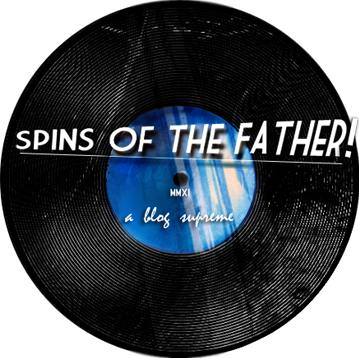 "I see that it is almost 2012... My account is that most rappers are still name dropping Obama, but have little positive to say about his track record on race, poverty, etc. Assuming the Occupy Wall-Street raps die down, it might be worth revisiting these issues for 2012."
"I see that it is almost 2012... My account is that most rappers are still name dropping Obama, but have little positive to say about his track record on race, poverty, etc. Assuming the Occupy Wall-Street raps die down, it might be worth revisiting these issues for 2012."In late 2008, I wrote a lengthy piece for Philly's Foundation mag on Hip Hop power and its relationship with the rising star power of presidential hopeful Barrack Obama. The piece was constantly being rewritten that fall as new Obama mixtapes dropped every week and election poll results came in. I had attempted to be objective but there is admittedly a "Hope"-ful and perhaps naive tone to the article.
Looking back on that moment, my response below to Travis recounts what discourse in Hip Hop I may have intentionally overlooked in 2008. And as we look ahead to 2012, maybe it's time to acknowledge these uncomfortable grumblings were more accurate than not.
I recently revisited Dead Prez's 2008's "PolitriKKKs" M-1's lyrics took a thinly veiled swipe at 2008 presidential winner: "billion dollar campaigns / trillion dollar bailout / anybody know the definition of a sell-out?"
"If you really want to see what black governance is like, take a look at the mayors of major cities. When the cities were in power, we couldn't be the mayors, it was when the cities lost power, they put in black mayors. When the states had power, we couldn't be governors. When the states lost power, we have African American senators and governors. Now the nation has lost power, the dollar has lost power. The world is global. Now you can get a black president because it doesn't matter. It's global now" (from around 4:45 mark of interview)
Revolutionary, "conscious" rappers are not the only voices critical of Obama or suspicious of how this election is any tangible measurement of social progress. Peep Cornel West, a highly prolific initial supporter of Obama, throw down damning criticism of O's administration:
 For a certain segment of our population here in the US in the fall of 2011, there now seems to be popular acknowledgement that the executive branch has been rendered powerless by Wall St and military oligarchs. 2008's "Hope" now looks like a smoke screen for business as usual.
For a certain segment of our population here in the US in the fall of 2011, there now seems to be popular acknowledgement that the executive branch has been rendered powerless by Wall St and military oligarchs. 2008's "Hope" now looks like a smoke screen for business as usual.So as we enter the 2012 elections, it is clear there is again a definitive need for (young black) youth to demand "Change" via Hip Hop culture. I don't know the numbers but I believe Hip Hop practitioners and its audiences had a direct contribution of creating popular interest and support for Obama in 2008; the suport was crucial in both essence and in actual votes.
It is all the more necessary in 2012. I suppose I am holding out hope against hope that O and his peoples are waiting for the blank check of a second term to truly enact structural political and economic change. Don't know why they didn't sense that the popular support that Obama received in 2008 was enough to start swinging in '09 but I will chalk it up to inexperience.
But, no doubt, a need for fiery calls of accountability flowing over a boom and a bap could help create the necessary discourse where popular culture and politics meet. Consider Black Starr's "Fix Up" a first volley:
